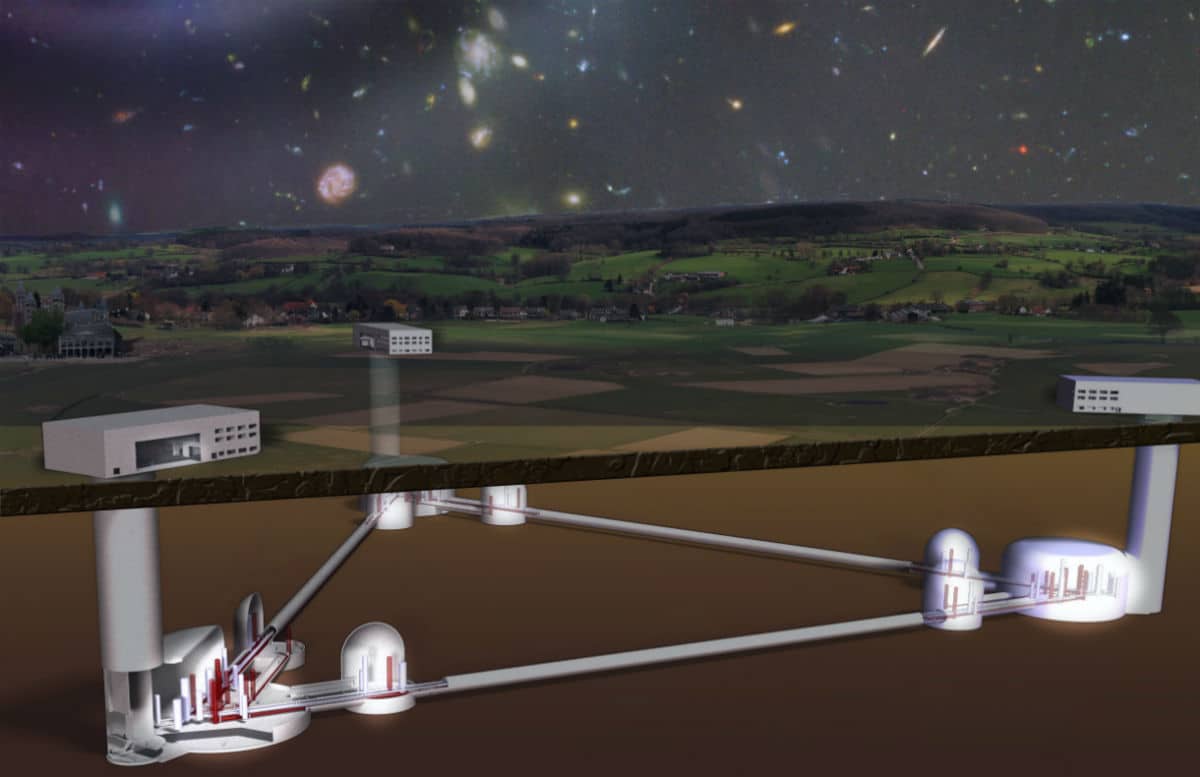
Limburg battery specialist creates low-carbon solution for seismic survey Einstein Telescope
Spurred on by POM Limburg, Peerse battery specialist BatteryPackService and Dutch company Seismic Mechatronics are joining forces for the Einstein Telescope. The two companies are developing a low-carbon solution to map the subsurface.
The Einstein Telescope is a state-of-the-art research centre researching the origins of the universe, black holes and stars. The triangular telescope, with 10 kilometre-long sides, will be built some 250 metres underground. The Italian island of Sardinia and the border triangle in the Meuse-Rhine region are still in the running to build the observatory. In 2024, Europe will make a decision. The arrival of the telescope is expected to provide €2 billion in investments and 1,500 jobs to the Meuse-Rhine region.
Sound waves
To determine the best possible location for the Einstein Telescope, but also to reduce the cost of tunnelling, it is crucial for scientists to know in advance the geological composition of the subsurface. This can be done through seismic surveys.
Richard de Kunder, CEO of Dutch company Seismic Mechatronics, which builds seismic systems: “We map the subsurface using sound waves. Those waves are transmitted into the soil, which are bounced back by the underlying structures and earth layers. Based on the travel time of the rebound, scientists get a clear picture of the subsurface.”
Low carbon
Unfortunately, deep seismic surveys do bring with them a certain level of safety risk or environmental damage. The use of explosives or diesel-powered systems is common.
Jos Symons, CEO of Peer-based BatteryPackService, specialising in developing customised battery systems: “High time, therefore, for an innovative, low-carbon solution. For the Einstein Telescope’s seismic survey, we are developing a modular battery system where the battery size can be easily increased or decreased. Incidentally, by using batteries instead of diesel generators, there are also far fewer land disturbances.” The batteries will be tested at EnergyVille in Genk, which has all the facilities for high-performance battery testing.
Wider application
The new battery technology is not only relevant for the Einstein Telescope, but can also be applied more widely. For example, a heavy-duty battery system can be used in larger agricultural vehicles, among others. Moreover, batteries can also provide relief in other forms of seismic surveys, such as mining or geothermal. Richard de Kunder confirms: “Emission-free soil testing is essential in terms of making our industry more sustainable.” Through those wider market applications, the Einstein Telescope is already boosting innovation in the region.
Tom Vandeput, Deputy for the Economy and Chairman of POM Limburg: “Companies are getting inspired by the project’s many technological challenges. This is resulting in new technologies. And as such, a project like the Einstein Telescope is already an economic catalyst for Limburg.”
Success story
POM Limburg focuses on the link between the Einstein Telescope and companies. POM guides them and gets them around the table with knowledge institutions. Tom Vandeput: “The success story continues. After Aperam, Calculus and Agrippa, among others, this is the seventh Limburg company to offer its services to the telescope. Our candidate portfolio is getting stronger and stronger, but our region is also getting an innovation boost.”